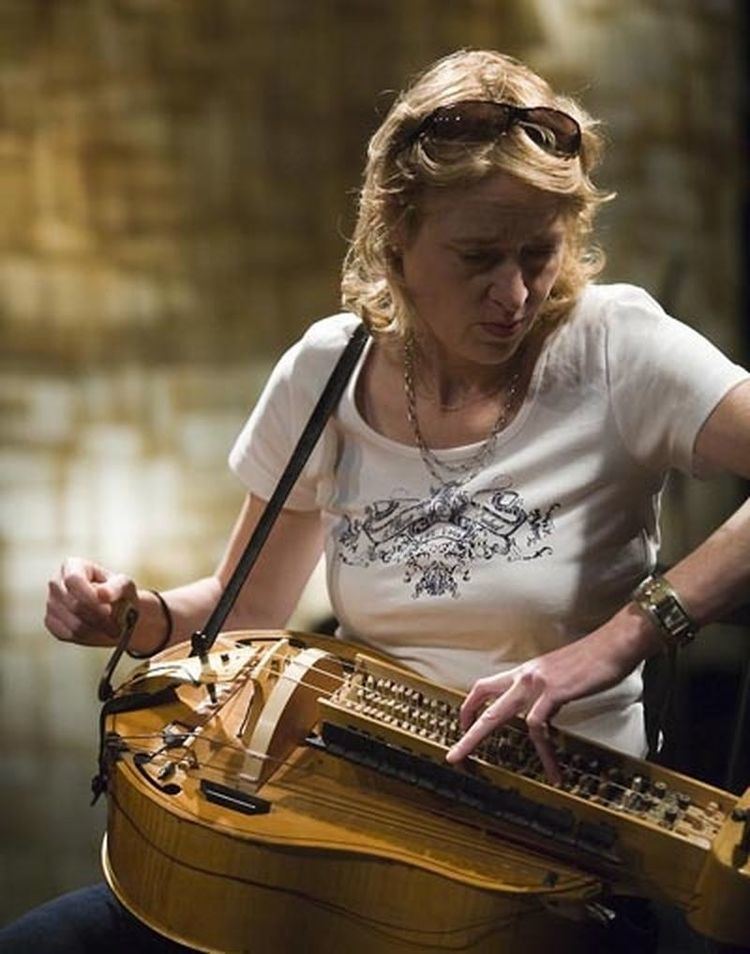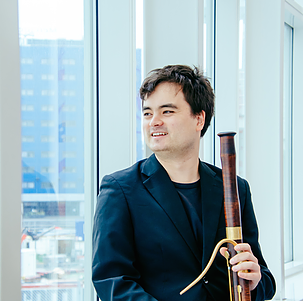Prom 71: Dunedin Consort, Butt review – Bach to the drawing-board please | reviews, news & interviews
Prom 71: Dunedin Consort, Butt review – Bach to the drawing-board please
Prom 71: Dunedin Consort, Butt review – Bach to the drawing-board please
Solo moments were all too brief

Blame it on the box set. The four Bach Orchestral Suites fit neatly together as a recording project. They used to fill out the four sides of a double LP back in the early stages of the baroque revival. Completists and collectors could rejoice then, and with many more versions to choose from, they still can now.
The first problem is a nagging propensity to hang around in D major. Two of the four suites – so half of the set in the versions normally played these days – remain solidly and stolidly in that key throughout, in order to accommodate the grandeur of a three-piece trumpet section. The solution last night was to keep that pair as far apart from each other as possible, to begin the concert with one, and to end with the other. The Suites each have the same form of a sequence of dances.
Another cunning plan was attempted to bring some variety to this concert. Each of the Suites was accoutred with a short, new pièce d'occasion from a contemporary composer, co-commissioned by the Dunedin Consort and the BBC Proms, and written for the same instrumentation as the Suites. It is a similar programming formula to that used in to another compendium-style and much longer Prom enterprise last season, when the Brandenburg Concertos were paired with contemporary pieces, again with mixed results. Here the brief given to the composers was more constricting, to say the least.
 The composers on this occasion were Nico Muhly and Stevie Wishart (pictured right playing the hurdy-gurdy) hose compositions came after the Bach Suites Nos. 4 and 1 in the first half, and Allie Robertson and Stuart McRae, who curtain-raised for Suites 2 and 3 after the interval. The programme timings in the programme for all of these pieces were all given at ‘around two minutes’.
The composers on this occasion were Nico Muhly and Stevie Wishart (pictured right playing the hurdy-gurdy) hose compositions came after the Bach Suites Nos. 4 and 1 in the first half, and Allie Robertson and Stuart McRae, who curtain-raised for Suites 2 and 3 after the interval. The programme timings in the programme for all of these pieces were all given at ‘around two minutes’.
The most flamboyant and mood-breaking of the pieces was Stevie Wishart’s The Last Dance? She juxtaposed string writing with the punch and heft of the "Glorification" scene from Stravinsky’s Rite of Spring with field recordings of the song of the endangered hooded grebe. Another successful piece was Stuart Macrae’s which gave the prominent dotted rhythms of Bach’s overtures a thorough working-over, and also had a passage of eerily rising fourths. It seemed to engage more deeply with Bach than either Nico Muhly’s very slight Tambourin or Allie Robertson’s over-sentimental Chaconne.
And how was the Bach? Things started shakily. The trumpets were splitting notes at the outset, and that seemed to spread uncertainty and reticence in the band, and might have been what led to some sour oboe tuning. Things did promptly recover, and we could enjoy the many virtues of John Butt’s direction. When he frees up the rhythmic pulse he always does so in a way that feels natural, and he also leads the ensemble with great clarity.
 There were some good moments when solo players were able to take command, but they were all too brief. Bassoonist Joe Qiu (pictured left left by Mon Sirisit) was a strong presence in Suite No. 1. Violinist/leader Matthew Truscott shone when given the first statement of the “Air” from Suite No.3, and Katy Bircher made a vivid impression when briefly given the solo part on her own for the central section of the Polonaise in Suite No. 2. That really was a blink-and-you’ll-miss-it moment; for the rest of the time – and presumably for reasons of balance with the orchestra – the decision had been taken to give the solo part to three flautists playing in unison.
There were some good moments when solo players were able to take command, but they were all too brief. Bassoonist Joe Qiu (pictured left left by Mon Sirisit) was a strong presence in Suite No. 1. Violinist/leader Matthew Truscott shone when given the first statement of the “Air” from Suite No.3, and Katy Bircher made a vivid impression when briefly given the solo part on her own for the central section of the Polonaise in Suite No. 2. That really was a blink-and-you’ll-miss-it moment; for the rest of the time – and presumably for reasons of balance with the orchestra – the decision had been taken to give the solo part to three flautists playing in unison.
The brevity of these solo moments drew all the attention in on the orchestra and their ability to leave the impression of rhythmic alertness, style and character. The Dunedin Ensemble play well, but there are clearly some continental ensembles which reach higher standards, and there were moments when one simply wanted more from this group. The “Sarabande” of Suite No.2 can be a moment of ineffable calm and beauty; here it never really settled. The final “Gigue” of Suite No.3 can buzz with the excitement of a sprint to the line; it was beset with orchestral raggedness.
Above all, this Prom proved the point that, rather than looking either good on paper or neat in theory, concert programming always needs to prove its effectiveness in the moment. That, above all, is where this particular "Bach Night" in homage to Henry Wood fell short.
rating
Share this article
The future of Arts Journalism
You can stop theartsdesk.com closing!
We urgently need financing to survive. Our fundraising drive has thus far raised £49,000 but we need to reach £100,000 or we will be forced to close. Please contribute here: https://gofund.me/c3f6033d
And if you can forward this information to anyone who might assist, we’d be grateful.

Subscribe to theartsdesk.com
Thank you for continuing to read our work on theartsdesk.com. For unlimited access to every article in its entirety, including our archive of more than 15,000 pieces, we're asking for £5 per month or £40 per year. We feel it's a very good deal, and hope you do too.
To take a subscription now simply click here.
And if you're looking for that extra gift for a friend or family member, why not treat them to a theartsdesk.com gift subscription?
more Classical music
 Goldscheider, Brother Tree Sound, Kings Place - music of hope from a young composer
Unusual combination of horn, strings and electronics makes for some intriguing listening
Goldscheider, Brother Tree Sound, Kings Place - music of hope from a young composer
Unusual combination of horn, strings and electronics makes for some intriguing listening
 Helleur-Simcock, Hallé, Wong, Bridgewater Hall, Manchester review - moving lyricism in Elgar’s concerto
Season opener brings lyrical beauty, crisp confidence and a proper Romantic wallow
Helleur-Simcock, Hallé, Wong, Bridgewater Hall, Manchester review - moving lyricism in Elgar’s concerto
Season opener brings lyrical beauty, crisp confidence and a proper Romantic wallow
 Kohout, Spence, Braun, Manchester Camerata, Huth, RNCM, Manchester review - joy, insight, imagination and unanimity
Celebration of the past with stars of the future at the Royal Northern College
Kohout, Spence, Braun, Manchester Camerata, Huth, RNCM, Manchester review - joy, insight, imagination and unanimity
Celebration of the past with stars of the future at the Royal Northern College
 Jansen, LSO, Pappano, Barbican review - profound and bracing emotional workouts
Great soloist, conductor and orchestra take Britten and Shostakovich to the edge
Jansen, LSO, Pappano, Barbican review - profound and bracing emotional workouts
Great soloist, conductor and orchestra take Britten and Shostakovich to the edge
 Jakub Hrůša and Friends in Concert, Royal Opera review - fleshcreep in two uneven halves
Bartók kept short, and a sprawling Dvořák choral ballad done as well as it could be
Jakub Hrůša and Friends in Concert, Royal Opera review - fleshcreep in two uneven halves
Bartók kept short, and a sprawling Dvořák choral ballad done as well as it could be
 Hadelich, BBC Philharmonic, Storgårds, Bridgewater Hall, Manchester review - youth, fate and pain
Prokofiev in the hands of a fine violinist has surely never sounded better
Hadelich, BBC Philharmonic, Storgårds, Bridgewater Hall, Manchester review - youth, fate and pain
Prokofiev in the hands of a fine violinist has surely never sounded better
 Monteverdi Choir, ORR, Heras-Casado, St Martin-in-the-Fields review - flames of joy and sorrow
First-rate soloists, choir and orchestra unite in a blazing Mozart Requiem
Monteverdi Choir, ORR, Heras-Casado, St Martin-in-the-Fields review - flames of joy and sorrow
First-rate soloists, choir and orchestra unite in a blazing Mozart Requiem
 Cho, LSO, Pappano, Barbican review - finely-focused stormy weather
Chameleonic Seong-Jin Cho is a match for the fine-tuning of the LSO’s Chief Conductor
Cho, LSO, Pappano, Barbican review - finely-focused stormy weather
Chameleonic Seong-Jin Cho is a match for the fine-tuning of the LSO’s Chief Conductor
 Classical CDs: Shrouds, silhouettes and superstition
Cello concertos, choral collections and a stunning tribute to a contemporary giant
Classical CDs: Shrouds, silhouettes and superstition
Cello concertos, choral collections and a stunning tribute to a contemporary giant
 Appl, Levickis, Wigmore Hall review - fun to the fore in cabaret and show songs
A relaxed evening of light-hearted fare, with the accordion offering unusual colours
Appl, Levickis, Wigmore Hall review - fun to the fore in cabaret and show songs
A relaxed evening of light-hearted fare, with the accordion offering unusual colours
 Lammermuir Festival 2025, Part 2 review - from the soaringly sublime to the zoologically ridiculous
Bigger than ever, and the quality remains astonishingly high
Lammermuir Festival 2025, Part 2 review - from the soaringly sublime to the zoologically ridiculous
Bigger than ever, and the quality remains astonishingly high
 BBC Proms: Ehnes, Sinfonia of London, Wilson review - aspects of love
Sensuous Ravel, and bittersweet Bernstein, on an amorous evening
BBC Proms: Ehnes, Sinfonia of London, Wilson review - aspects of love
Sensuous Ravel, and bittersweet Bernstein, on an amorous evening
